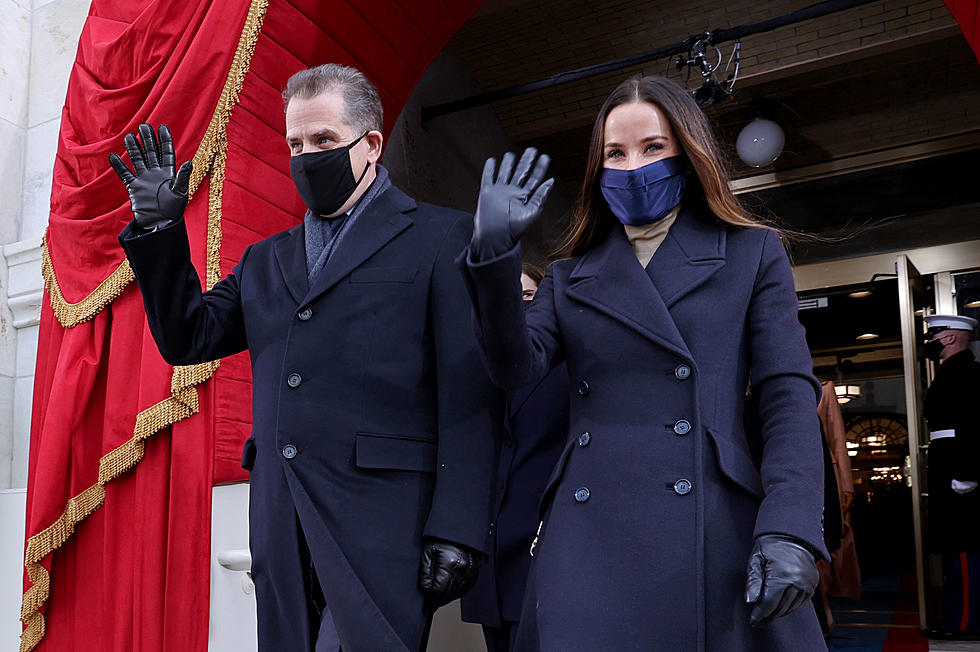Legislature Targets Sex Offenders With New Bills
BATON ROUGE, La. (AP) — Gov. Bobby Jindal's legislative package takes a heavy hand with sex offenders and lawmakers have backed the ideas overwhelmingly, adding to a list of restrictions already on the books for that category of convicted criminals.
A slew of bills making steady progress through the Louisiana Legislature contains the state's most recent attempt at keeping sex criminals off social networking websites, despite criticism that the measure would infringe on their First Amendment rights.
Since he took office in 2008, Jindal regularly has targeted sex offenders for tougher limits on their behavior, saying they're part of his goal to make Louisiana the safest place to raise a family.
In recent years, Jindal has signed into law bills that allow for chemical castration of sex offenders, lengthened jail sentences and expanded monitoring and restrictions on where they can live and travel. Lawmakers have gone along with nearly every proposal Jindal offered.
Among the bills this session are measures that would keep sex offenders out of public libraries and out-of-state residents from moving to Louisiana entirely. Another would match state law to federal law prohibiting purveyors of child pornography from viewing pornography introduced as evidence in their trials.
Lawmakers, backed by Jindal, have rewritten a measure passed last year prohibiting anyone convicted of a sex offence against a minor or of video voyeurism from accessing networking websites, peer-to-peer networks and chat rooms. The law was thrown out after a federal judge said that it effectively banned sex offenders from accessing the Internet. This year's rewrite narrows the definition down to sites that are primarily used for socializing, like Facebook.
Rep. Ledricka Thierry, D-Opelousas, said she has noticed the growing number of children using sites like Facebook. Facebook's policy already prohibits sex offenders from using their site, but Thierry said it can't be enforced without state law.
Thierry's bill defines social networking sites as sites where the primary purpose is "facilitating social interaction with other users of the website," and is capable of allowing users to communicate with each other and create personalized pages available to the public. The measure stipulates that websites providing photo-sharing, email or instant messaging; news sites; governmental sites; and sites facilitating commercial transactions, like Amazon, won't be banned.
Thierry said the bill is no different from other laws that dictate how people are punished for abusing their privileges, like a driver who has his license taken away for driving drunk.
"That's how I look at the Internet, that's a privilege. And I don't feel that interferes with your personal right as an individual when you've been declared a sex offender," she said.
Marc Fruge, a convicted sex offender living in Carencro, unsuccessfully urged lawmakers to kill the ban. Fruge, 34, said the bill tramples on his rights to free speech.
"Saying that you can't use Facebook to contact the president, the White House, the governor of Louisiana, any federal elected official who all use Facebook, I think that's going a little too far," he said.
Fruge said he was convicted as a sex offender after he met twice with a 14-year-old girl through a dating website that was restricted to minors.
Marjorie Esman, executive director at the ACLU of Louisiana said the state has traditionally had a penchant for penalizing sex offenders and that Jindal has made targeting them a high priority in his agenda.
"We have a very high sentencing rate and very draconian criminal laws," she said.
The organization filed a lawsuit against the Facebook ban that was passed last year on behalf of two sex offenders known as John Doe and James Doe on the grounds that it restricted them from creating profiles on everything from news sites to job sites.
Esman said this year's bill is better, but still flawed because it doesn't specify what constitutes a website.
A measure by Sen. Dale Erdey, R-Livingston, would prohibit a sex offender, if the offender's victim was under the age of 13, from being in a public library. It also mandates that the governing board of a library "develop and implement a plan to regulate access of sex offenders to the public library property under its jurisdiction."
"This bill is brought to you on behalf of the children," Erdey said in April as he described the measure, which is one vote from final passage.
A proposal by Rep. Joe Lopinto would change current state law regarding child pornography cases. Previously, defendants were able to put in a request to view the evidence in their trials, which could have applied to video tapes or photos in pornography cases.
"It's obviously not proper to request the pictures of what you've been charged for," Lopinto, R-Metairie, said. "This changes the burden to basically state that it can't be released."
Lopinto's bill is one step from final passage.
Legislation pursued by the governor to keep out-of-state sex offenders from moving to the state has been signed by Jindal.
Supporters of the measure say sex offenders often move if they find they wouldn't have to serve the full term of their registration in other states. The bill by Lopinto requires that they serve the full registration term of their sentence, even if it is longer than the registration period under Louisiana law for the crime.
Other proposals sent to the governor will prohibit sex offenders from living with three miles of their victims or communicating with them without their consent.
___
Online:
Louisiana Legislature: www.legis.la.gov
More From News Talk 96.5 KPEL









